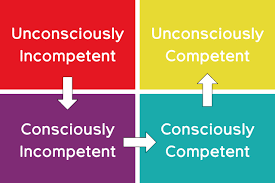How to Practice Like a Professional Musician
© Goh Tong Keat
How to Become a Better Musician
Practicing is an integral part of learning to play a musical instrument. It is how musicians improve their skills and become better. A good musician does not turn skillful overnight. Instead, it is through years and years of hard work. Practicing a musical instrument can be enjoyable and, at the same time, physically and mentally exhausting.
When it comes to choosing your method of practicing, it is very important to understand that good practice habits allow for the rapid development of solid skills and techniques, while bad practice habits may hinder progress or even cause physical injuries.
When it comes to choosing your method of practicing, it is very important to understand that good practice habits allow for the rapid development of solid skills and techniques, while bad practice habits may hinder progress or even cause physical injuries.
A 4-Step Plan for Practicing an Instrument
- Set goals
- Coordinate mindfully
- Evaluate
- Repeat constructively
Set Goals
People with no musical background tend to assess music practice by the hours a person spends playing the musical instrument. Ironically, many musicians also share this misconception. Sometimes, musicians confuse leisure playing with deliberate practice. It is perfectly fine to play through your favorite piece for leisure as many times as you like. However, when it comes to practicing, there should be a clear goal about what to achieve in each session. Practicing without a goal is like building a house without a blueprint.
Professional musicians usually set their goals on the more challenging parts of their music. For students, it could be anything that the teacher has assigned them to improve on. If you have a somewhat lofty goal to achieve within a week (for example, getting the tempo up significantly), it is wise to break it down into smaller and attainable goals each day (increasing the metronome mark gradually).
Professional musicians usually set their goals on the more challenging parts of their music. For students, it could be anything that the teacher has assigned them to improve on. If you have a somewhat lofty goal to achieve within a week (for example, getting the tempo up significantly), it is wise to break it down into smaller and attainable goals each day (increasing the metronome mark gradually).
Coordinate Mindfully
Mindfulness is crucial to everything we do in our lives. Mindfulness means being in the moment. In your practice, being conscious and aware of each action and intention can significantly enhance the effectiveness of your practice sessions. It is not unusual for our minds to wander off while our fingers move in "autopilot" mode. Such practice habits do not yield any positive results.
It is through deliberate coordination in the mind that one learns to tackle the problematic spots in the music. Some people may find it hard to stay focused over time. However, just like any muscle in our body, we can increase our attention span and remain mindful and conscious throughout our practice sessions by consistently training.
It is through deliberate coordination in the mind that one learns to tackle the problematic spots in the music. Some people may find it hard to stay focused over time. However, just like any muscle in our body, we can increase our attention span and remain mindful and conscious throughout our practice sessions by consistently training.
Evaluate
Evaluation is the most crucial part of practicing because it tells you whether your effort was well worth it. For musicians, this could be recording our own practice sessions. We all know that we can get different insights into our playings when looking back at our recordings. A lot of people tend to overlook the importance of this or simply take it for granted.
If you have been stuck with a particular passage for a while, it is worth evaluating whether your method of practicing that passage is effective or not. If things have not been going well, do not be afraid to change your approach. Some problems are harder to identify than others, but never leave out the chance to seek a better solution.
If you have been stuck with a particular passage for a while, it is worth evaluating whether your method of practicing that passage is effective or not. If things have not been going well, do not be afraid to change your approach. Some problems are harder to identify than others, but never leave out the chance to seek a better solution.
Repeat Constructively
If everything has been working well, then it is time to put your practice method through the "solidifying process." It means repeating the entire procedure until it becomes a natural part of you. If you wonder why a well-trained musician can effortlessly perform a challenging piece of music, it is because, after countless repetitions, playing that particular piece has become a habit.
Please keep in mind that it is still important to be mindful and to evaluate your own playing at this stage, as bad habits may even develop without your knowledge.
Please keep in mind that it is still important to be mindful and to evaluate your own playing at this stage, as bad habits may even develop without your knowledge.


